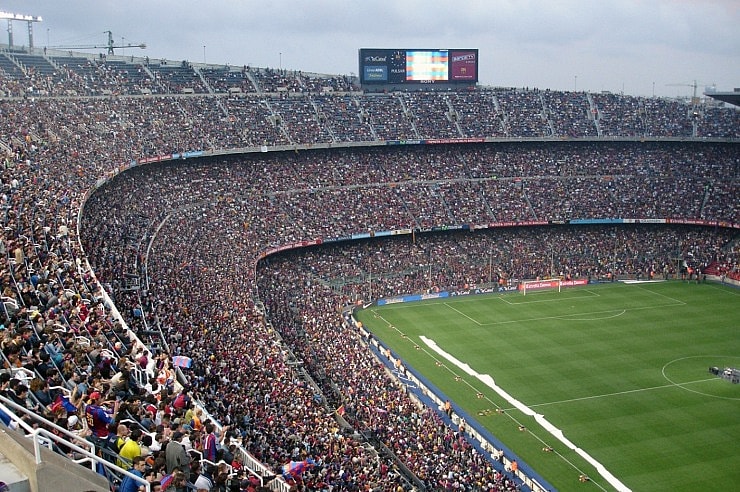
![]()
Predictor Team
Apr 14, 2025
Womens Football Predictor: The Ultimate Online Team Building Activity for 2025
If you own a business and love football, it is a no-brainer to us that you’d enjoy taking part in our football predictor for business.
![]() Predictor Team
Predictor Team
Aug 25, 2022

The chant that ‘football’s coming home’ strikes up every time there is a major football tournament. Yet when it comes to the Champions League, and its predecessor, the European Cup, it could be argued that it never left. So as Noise starts to put together its Champions League football predictor game, let’s take a look at the history of English clubs in Europe.
A rocky start
Football predictor games were easy when the European Cup was first established in 1955, with Real Madrid dominating the early years of the competition. They won the first five finals by an aggregate 18-8, culminating in a 7-3 thrashing of Frankfurt at Hampden Park in front of a massive crowd of 127,621 fans.
Despite being World Cup winners in 1966, no English club made the European Cup final until 1968, when Manchester United beat Benfica at Wembley to bring club football’s biggest trophy ‘home’ for the first time. That was to be the only success for seven years, until Leeds United made the final in 1975, with Ajax and Bayern Munich both winning three in a row during that time.
Feast and famine
Things improved significantly in the late 70s and early 80s, with English teams winning six European Cups in succession between 1977 and 1982, with Liverpool winning again in 1984. Liverpool were defeated in the final the following year, and the golden age came to an abrupt end, with only one English team, Manchester United, making the final again in the next 20 years.
Since 2004, things have looked far better for English sides in Europe, with fourteen English finalists in the last 18 finals. From 2005 to 2012, there was an English team in the final every year apart from 2010, with the 2008 final and all-English affair between Manchester United and Chelsea. This golden era was followed by a brief drought between 2013 and 2017, with no English finalists for five years, but since then, things have really started to get interesting, with English clubs dominating European competition.
Modern dominance
There have been no less than six English finalists in the last five years, compared to just two from Spain and one each from Germany and France. What’s more, two of those finals have been all-English with Liverpool beating Spurs in 2019 and Chelsea beating Manchester City in 2021. In the same period, there have also been three English finalists in the UEFA League final, including another all-England final in which Chelsea beat Arsenal in 2019.
Overall, English clubs are second to Spanish sides when it comes to European finals, with Spain boasting 30 finalists and 19 winners, to England’s 25 finalists and 14 winners. However, if you remove Spain’s dominance in the first five years of European competitions, then you find that since 1961, the two nations have been neck and neck with 14 wins and 11 runners up places each. In the Champions League era, since the 1992-93 season, Spain have just edged out the English clubs with 17 appearances in the final to English club’s 15, although they have been considerably more successful, with 12 wins to the English 6.
Why are English clubs so dominant?
When you are assessing teams for your Champions League football predictor game, you need to look beyond just the team and look at the quality of the league. The Premier League is one of the best, if not the best football league in the world, with remarkable depth. While Spanish success in Europe has been dominated by just two clubs, Real Madrid and Barcelona, no less than five different English sides have taken home the prized silverware: Liverpool, Manchester United, Chelsea, Nottingham Forest and Aston Villa.
Despite Liverpool’s disappointment in Paris earlier this year, there is still a lot to get excited about with the Champions league. If you’d like to channel that excitement into your workplace, with the Champions League football predictor game, then get in touch with the Noise team today.